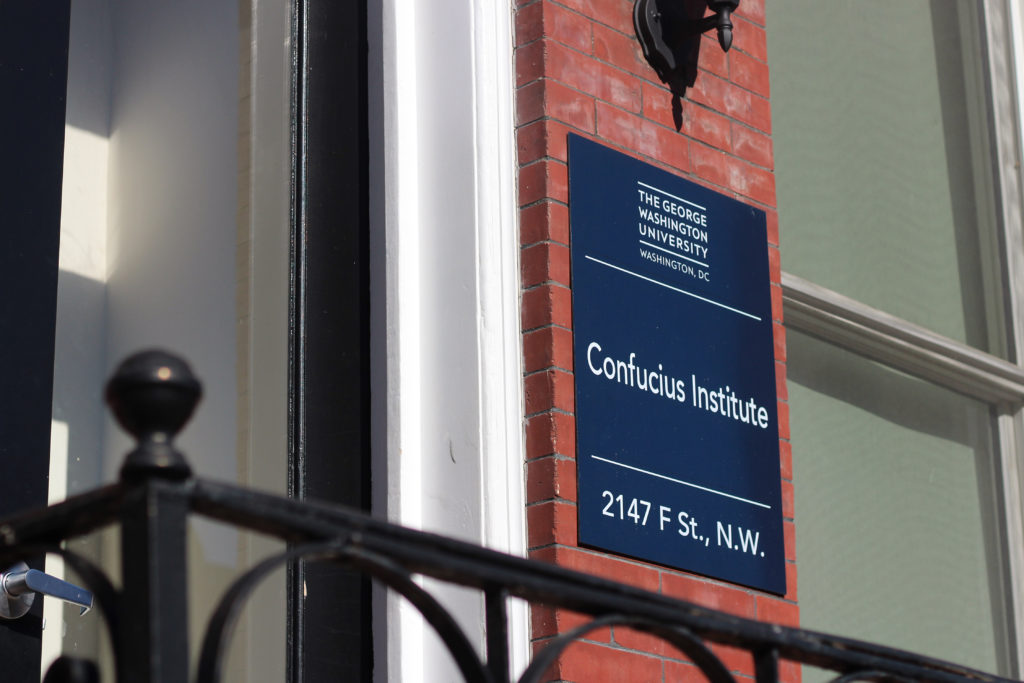Officials have accepted nearly $80 million in funding from foreign governments in recent years, mostly in tuition payments.
The University took more than $75 million from the governments of China and Saudi Arabia since 2013, according to U.S. Department of Education disclosures. Officials said a large portion of the funding went toward student tuition grants, and the remainder funded academic initiatives.
University spokeswoman Crystal Nosal said all of the money GW received from Saudi Arabia funds tuition payments for students. About 70 percent of the funding provided by China went to seminars, workshops and tuition, while the remainder of the money funded GW’s Confucius Institute, an educational program that supports the study of Chinese language and culture.
“Foreign governments have for many years provided tuition and expenses for pre-college, undergraduate, graduate and medical education and training for their students attending GW,” she said in an email. “We regularly evaluate our international programs, including our programs with these countries, to ensure they are consistent with our educational mission.”
Nosal declined to confirm the amount of funding that appears in the disclosures to the Department of Education. She also declined to take a position on criticisms of ties between the United States and China and Saudi Arabia on account of issues related to human rights, free speech and intellectual property theft.
GW accepted $76 million in contracts from the Saudi Arabian government since 2013 and $3.4 million from the government of China, the disclosures state. The Chinese government also gave the University about $333,945 in gifts, according to the disclosures.
Funding from foreign governments at universities has increasingly come under scrutiny after FBI director Christopher Wray testified before a U.S. Senate panel that the Chinese government was “taking advantage” of the United States through its universities by “exploiting” the country’s research environment.
The Department of Education announced in November that federal officials found $1.3 billion in unreported foreign funding in the early stages of its investigation of six U.S. universities.
“We have an ongoing public debate about what strings are coming with these kinds of contributions and whether this is another way foreign governments are trying to influence U.S. foreign policy.”
Officials said about a year ago that they were not considering closing GW’s chapter of the Confucius Institute, one of the many centers for China studies that has faced scrutiny from academic freedom experts and members of Congress for spreading government propaganda.
International policy experts said officials should be transparent about conditions associated with funding from foreign governments to reassure students and faculty that foreign governments are not improperly influencing the University’s research or expert testimony.
Mandy Smithberger, the director of the Straus Military Reform Project at the nonprofit government watchdog Project on Government Oversight, said the public expects research output and testimony from faculty associated with universities to be independent, but foreign funding puts academic integrity at risk.
GW’s large international affairs program magnifies the consequences of potential influence from foreign governments because of the public’s trust in the Elliott School of International Affairs’ academic perspective, she said.
“They are considered to be one of the leading universities on international affairs – it raises questions about their independence,” she said. “We have an ongoing public debate about what strings are coming with these kinds of contributions and whether this is another way foreign governments are trying to influence U.S. foreign policy.”
Ben Freeman, the director of the Foreign Influence Transparency Initiative at the foreign policy think tank Center for International Policy, said GW risks attracting negative publicity by continuing to accept funds from the Saudi Arabian government after the murder of journalist Jamal Khashoggi by Saudi government operatives. Freeman said many places would not take the money because of its association with the regime.
Think tank The Middle East Institute announced it would stop taking money from the Saudi government shortly after Khashoggi’s death before Saudi officials admitted that the journalist was killed at the Saudi embassy in Turkey.
“I think, in some senses, Saudi Arabia became something of a scarlet letter,” he said. “It became very taboo to continue to work with Saudi Arabia.”
Freeman said it is possible that contracts like GW’s with foreign governments do not come with any improper influence, but officials should disclose any strings attached to the funding if they exist.
“Just be open and honest about what you’re doing and don’t try to hide it,” he said. “The more they try to hide that, the shadier it looks, and the shadier it probably is.”
Saudi Arabia’s government has funded faculty positions at GW like that of GW Cancer Center faculty member Edward Seto, the holder of a cancer biology professorship named after a former Saudi king dedicated in 2017.
A University release at the time credited the Kingdom of Saudi Arabia with the establishment of the professorship but did not say how much funding the government provided.
“I’m honored today to be given this opportunity to contribute, no matter how small, to the GW Cancer Center, the medical school, the University and to the educational ambitions and goals of the late King Fahd,” he said in the release at the time.
Beryl Benderly, a science writer who wrote a column calling for more transparency in foreign funding at universities for Science magazine, said that beyond building mistrust in universities, foreign funding and involvement in research is sometimes associated with the theft of new ideas and technology. Because the Chinese government is in close competition with the United States, Chinese officials could try to leverage their funding at U.S. universities to recruit talent back to China, she said.
An Associated Press investigation found that the FBI questioned universities across the country about Chinese theft from their researchers and investigated some collaboration between China and researchers.
“This business of the talent, bringing back the talent that’s everywhere, that’s pervasive,” Benderly said.





